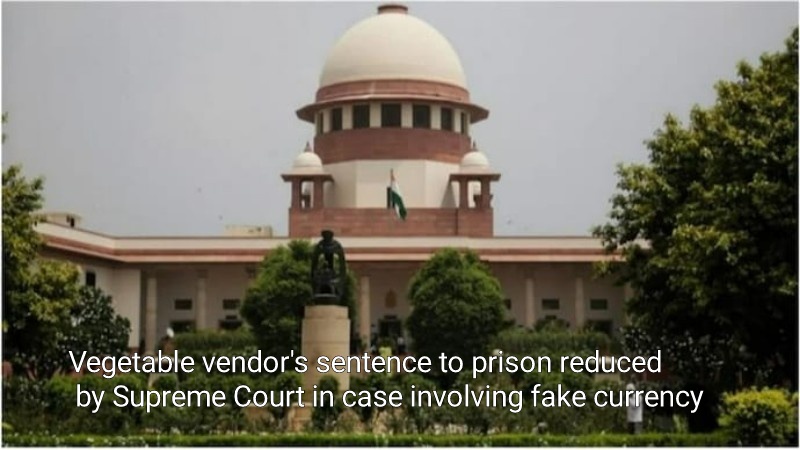
A vegetable vendor from Tamil Nadu who was found guilty of possessing 43 fake currency notes of the denomination of Rs 10 had his sentence reduced by the Supreme Court.
Palanisamy, a resident of the Theni district, was ordered immediately released by a bench of Justices MM Sundresh and JB Pardiwala.
‘The charge against him is only under Section 489C of the IPC. He was found to be in possession of 43 counterfeit notes of denomination of Rs 10. He was a vegetable vendor. The main accused is A3. Considering the aforesaid aspects, we are inclined to modify the sentence to the one already undergone while retaining the conviction… The appeal is allowed in part by modifying the sentence of 5 years imposed by the High Court to that of the period already undergone.’
If not required in any other instance, the appellant shall be discharged immediately, the bench ruled in its ruling dated August 10.
Possession of forged or counterfeit currency-notes or banknotes is a crime under Section 489 C of the Indian Penal Code (IPC), which carries a maximum seven-year prison sentence, a fine, or both.
On January 8, 2014, the trial court found Palanisamy guilty of the crime, and he was given a seven-year prison term. On October 24, 2019, the Madras High Court reduced the seven-year sentence to five years. He spent 451 days behind bars.
The bench observed that only Palanisamy, one of the case’s three defendants, filed an appeal. Two defendants were charged under Section 489 C, and the third fled the scene.
The prosecution’s case against Palanisamy, according to the top court, is that he was caught in possession of fake currency during a seizure that was carried out as a result of confidential information.
Palanisamy’s attorney stated before the bench that the accused is illiterate, has been imprisoned for 451 days, and makes a living as a vegetable vendor.
‘There is no previous conviction rendered against him and no case is pending. Thus, taking note of the aforesaid facts, the sentence imposed may be reduced,’ he had submitted.
The bench took into account Palanisamy’s attorney’s argument and immediately ordered his release, unless he was needed in another case.
According to the prosecution, police apprehended Palanisamy and another accused Kalaai on September 22, 2002, under suspicious circumstances, at Malligai Wines, Mamarazar Bazar, in Bodi Town of Tamil Nadu.
The wanted accused (A3) named Kabeer arrived from Thiruvananthapuram, Kerala, and gave them 24 bundles of fake cash notes with a denomination of Rs 10, Palanisamy had said.
He had admitted in his confessional statement that on September 22, 2002, he and Kalaai had taken one package, divided it among themselves, and tried to sell it on the market.

Post Your Comments